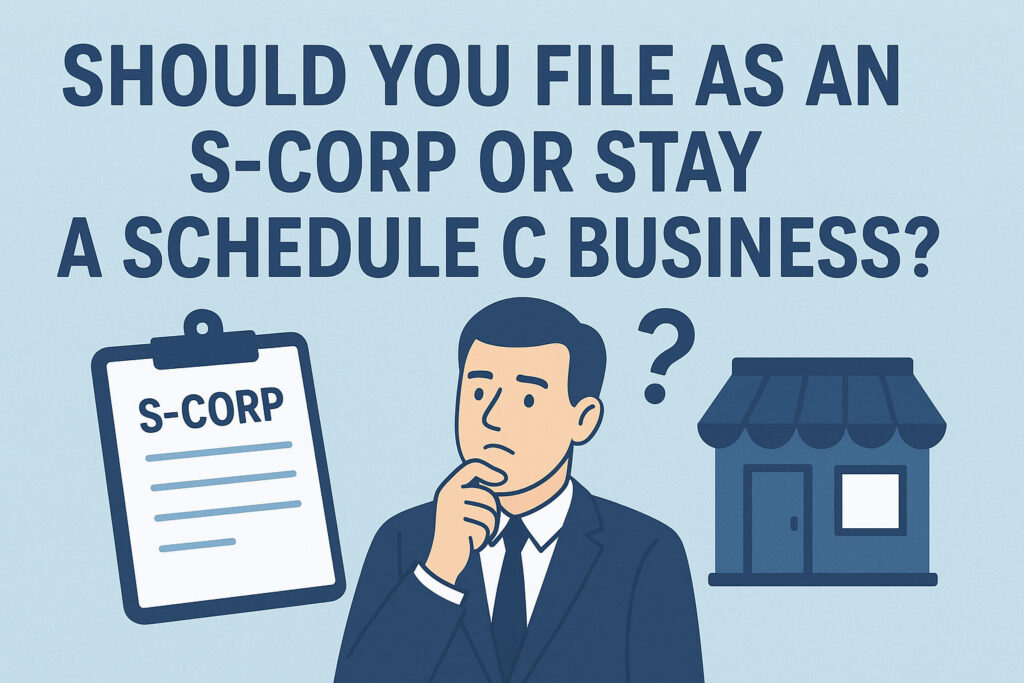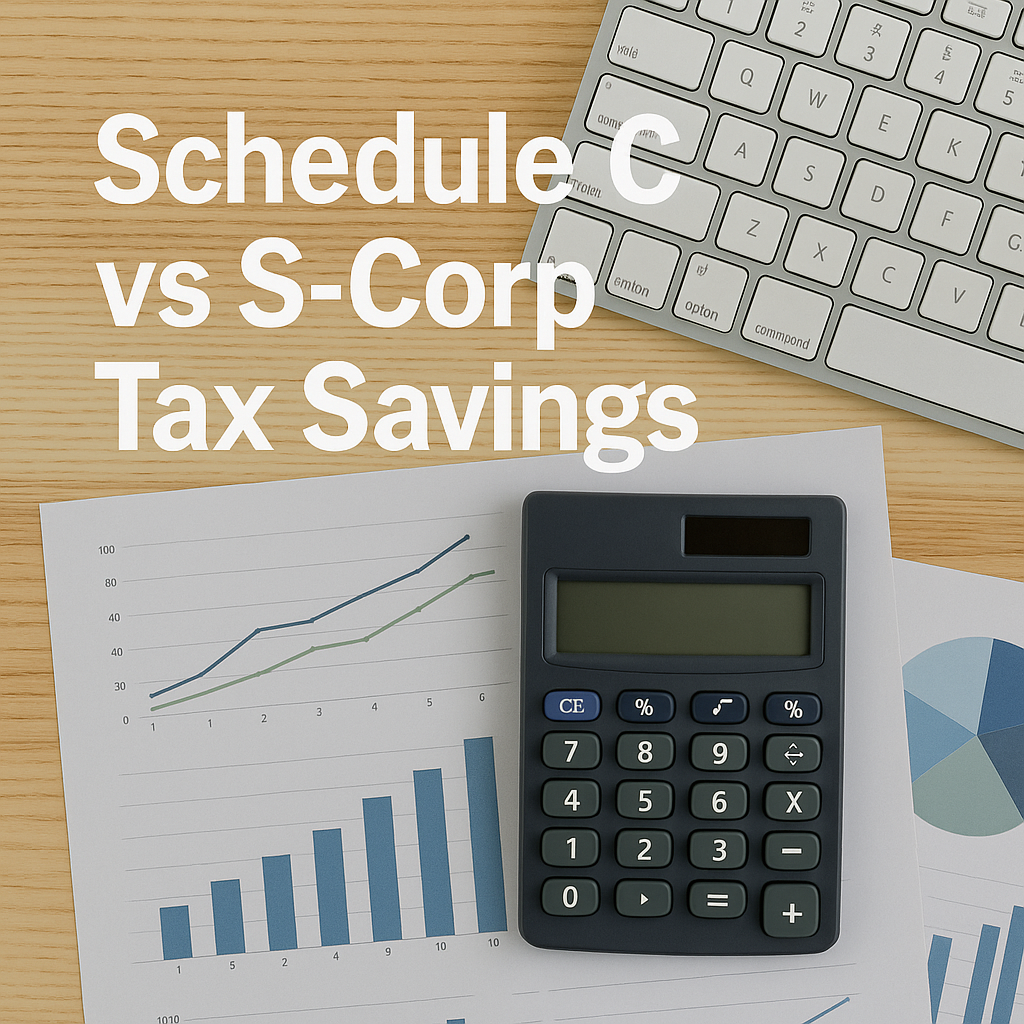If you’re a small business owner or self-employed professional, and had that moment where you saw your Self Employment Tax line on your tax return, you’ve probably wondered how you can pay less on taxes. One way to save money can be to switch from a Schedule C sole proprietorship to an S-Corporation (S-corp). But when is the right time to switch if it all? The answer depends on your income, income history, goals, and how much time you are willing to spend jumping through hoops. Let’s break down the pros and cons and show you how our Tax Planning Calculator can help you decide what’s best for you.
If you want individualized help, you can sign up for a personalized tax planning evaluation.
The Pros of Filing as an S-Corp
- Save on Self-Employment Taxes:
One of the biggest benefits of an S-corp is the potential for tax savings. As an S-corp owner, you can pay yourself a reasonable salary and take the remaining profits as distributions, which are not subject to self-employment tax. - Lower Audit Risk:
S-Corps historically have had lower audit rates than a schedule C business.
- Tax Planning Opportunities:
There are some unique tax planning opportunities for those who choose an S-Corp. You may be able to take advantage of additional tax deductions not available to Schedule C business owners.
The Cons of Filing as an S-Corp
- Increased Paperwork and Compliance:
Running an S-corp means filing payroll, maintaining corporate records, and meeting other IRS and state requirements. It’s more involved than filing a Schedule C on your personal tax return. - Reasonable Compensation Requirements:
The IRS requires you to pay yourself a fair market salary for the work you do. Figuring out what’s “reasonable” can be confusing — and paying yourself too little (or too much) can attract IRS scrutiny. - Higher Administrative Costs:
Payroll services, bookkeeping, and extra tax filings can increase your business costs. While many business owners still come out ahead, it’s important to understand the trade-offs. - Lowered Social Security benefits
You may have lowered social security benefits. Based on your age and historical earnings, this could matter very little or quite a lot (TaxFare is here to help!).
Use Our Tax Planning Calculator to See the Difference
Wondering if an S-corp really makes sense for your situation? Our Tax Planning Calculator lets you run the numbers quickly. You can compare what you’d pay in taxes as a Schedule C business versus as an S-corp and see:
- Potential self-employment tax savings
- Estimated federal tax impact.
- The break-even point where switching starts to make financial sense
It’s the fastest way to make a data-driven decision about your business structure, without guessing or doing complex math.
Need Help with Reasonable Compensation?
If you decide to make the switch, we’ve got you covered there too. We offer Reasonable Compensation Studies in our TaxPlanning package to help you determine exactly how much you should pay yourself as an S-corp owner. Our analysis uses the many hats approach to get you the lowest justifiable salary. We look at your industry, varying roles, and region to ensure your salary meets IRS guidelines and supports your tax strategy.
The Bottom Line
Choosing between an S-corp vs. Schedule C business isn’t always clear-cut, but the right choice can make a big difference in your tax bill. Our Tax Planning Calculator gives you a simple way to see potential savings, understand the trade-offs, and decide if an S-corp is right for you.


